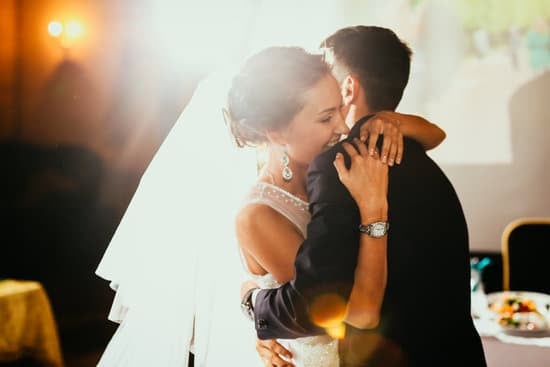Planning a wedding involves meticulous attention to detail, and one of the key considerations is the length of the event. “How long does a wedding take” is a common question for couples navigating the wedding planning process. In this article, we will explore the various factors that influence the duration of weddings, from the ceremony to the reception, and provide practical tips for managing time effectively on your special day.
The length of a wedding can vary depending on numerous factors such as cultural and religious traditions, pre-wedding activities, reception duration, speeches and toasts, and whether it’s a traditional or non-traditional celebration. Understanding these factors will help you plan a timeline that ensures your wedding runs smoothly without feeling rushed or dragged out.
From the moment couples say “I do” to speeches and toasts, all the way through unforeseen delays, we will break down each aspect of a typical wedding day. Whether you’re planning an intimate micro-wedding or a grand affair, this comprehensive guide will provide insights into managing time effectively while creating unforgettable memories for you and your guests. So let’s delve into how long weddings typically last and how to make every moment count.
Ceremony Length
The duration of a wedding ceremony can vary significantly based on a variety of factors, including religious or cultural traditions. In general, a traditional wedding ceremony typically lasts between 30 minutes to an hour. However, this can fluctuate depending on the specific customs and rituals incorporated into the ceremony.
Religious Traditions
In many religious ceremonies, such as Catholic or Hindu weddings, the length of the ceremony is influenced by specific rituals and traditions. For example, a traditional Catholic wedding mass can last up to an hour or more, including readings, vows, and communion. Similarly, Hindu weddings often involve elaborate ceremonies that can extend the duration of the wedding to several hours.
Cultural Customs
Different cultures have their own unique customs and practices that impact the length of a wedding ceremony. For instance, traditional Chinese weddings may include multiple ceremonial activities such as tea ceremonies and games which can extend the duration of the celebration. On the other hand, some cultures have shorter, more succinct wedding ceremonies that may only last 15-20 minutes.
Non-Traditional Ceremonies
For couples opting for non-traditional ceremonies such as elopements or civil weddings, the duration of the ceremony may be much shorter compared to traditional religious weddings. Elopements typically involve a brief exchange of vows in an intimate setting, lasting anywhere from 5 to 15 minutes.
Understanding how different religious and cultural traditions impact the length of a wedding ceremony is crucial for couples planning their special day. By considering these variations and discussing them with their officiant or wedding coordinator, couples can better plan the timeline for their wedding day to ensure it aligns with their vision for this momentous occasion.
Pre-Wedding Activities
The pre-wedding activities are an essential part of the overall wedding timeline. From the first look to the bridal party photos, and guest arrivals, these events can significantly impact the flow of the day. Each activity has its own specific time frame and adds to the overall experience of the wedding day.
The First Look
The first look is a private moment where the couple sees each other for the first time before the ceremony. This event usually takes place about 1-2 hours before the ceremony begins. It provides an intimate opportunity for the couple to connect and share their excitement before they walk down the aisle.
Bridal Party Photos
After the first look, it’s common for the bridal party photos to take place. These typically occur at various locations such as a park, garden, or another picturesque setting. The duration of bridal party photos can vary depending on factors such as group size and location accessibility. Typically, couples should budget around 1-2 hours for this portion of pre-wedding activities.
Guest Arrivals
As guests arrive at the ceremony venue, it’s important to factor in time for them to find parking, locate their seats, and socialize with others. Depending on how many guests are expected, it’s wise to allow at least 30 minutes for guest arrivals before the ceremony begins.
Overall, pre-wedding activities play a crucial role in shaping the ambiance and timing of a wedding day. Couples should carefully plan and allocate sufficient time for these events to ensure that everything runs smoothly and according to schedule throughout their special day.
Reception Duration
A wedding reception can vary greatly in length depending on the couple’s preferences and the specific details of the event. Here is a breakdown of what to expect when it comes to the duration of each component of a typical wedding reception:
- Cocktail Hour: A standard cocktail hour usually lasts for about 1 to 1.5 hours. During this time, guests can enjoy drinks, hors d’oeuvres, and socialize with other attendees while the newlyweds take photos or participate in other traditional customs like receiving lines.
- Dinner Service: Once cocktails are over, guests may be ushered to their seats for dinner service. Typically, a plated dinner can take around 1.5 to 2 hours as guests are served multiple courses during this time. Buffet-style dinners may take slightly longer depending on how efficiently guests move through the line.
- Dancing and Entertainment: After dinner is complete, the formalities often give way to dancing and other entertainment activities, which may last anywhere from 2 to 4 hours until the end of the reception. Couples may choose to provide additional entertainment such as musical performances, photo booths, or games during this time.
When planning a wedding reception timeline and duration, couples should consider their own preferences while also ensuring that their schedule offers enough time for each component of the celebration without feeling rushed.
It is crucial for couples to communicate with their venue coordinators or wedding planners about setting realistic timelines for each portion of the reception so that everything flows smoothly throughout the evening. Making sure there are accurate estimates for how long it will take for guest transitions – from cocktail hour to dinner service; then from dining area relocation for dancing – ensures an uninterrupted flow for every phase of the reception.
Asking questions like “how long does a wedding take?” early in your planning process will help ensure you have enough time set aside for all aspects of your special day. Engagement party invitations may be planned entirely at your discretion as several different options exist within today’s repertoire toward making decisions that count.
Speeches and Toasts
When it comes to the overall length of a wedding celebration, speeches and toasts play a significant role in determining how long the event will last. These meaningful and often emotional parts of the reception can add a significant amount of time to the festivities.
Depending on how many speakers there are and how long each speech is, the duration of this portion of the evening can vary greatly. The timing of speeches and toasts also depends on the couple’s preferences and the schedule set for the reception.
Here are some factors that influence how long speeches and toasts can take at a wedding:
- Number of speakers: The more speakers there are, the longer this part of the celebration will be. It’s important for couples to carefully consider who they want to have speak at their wedding in order to manage the length of time dedicated to speeches and toasts.
- Length of speeches: Some people may keep their speeches short and sweet, while others may have more lengthy remarks prepared. Couples can work with their speakers beforehand to discuss an appropriate length for their speeches, which can help maintain a reasonable duration for this part of the celebration.
- Order of speeches: The order in which speeches and toasts are given can also impact how long this portion of the evening will take. Couples should work with their emcee or coordinator to determine the most efficient sequence for these presentations so that they don’t drag on for too long.
Ultimately, while speeches and toasts can add considerable time to a wedding celebration, they also contribute significant meaning and emotion to the event. Couples should carefully consider who they want speaking at their wedding and provide guidance on speech length in order to ensure that this portion of their special day does not detract from other aspects of their celebration.
Traditional vs Non-Traditional Weddings
When it comes to the duration of a wedding, traditional and non-traditional ceremonies can vary significantly. Traditional weddings typically involve a longer timeline, including a formal ceremony, cocktail hour, dinner service, speeches, and dancing. On the other hand, non-traditional weddings such as elopements and micro-weddings tend to have a shorter duration and a more intimate atmosphere.
Traditional weddings often span an entire day, with the ceremony itself typically lasting around 30 minutes to an hour. This is followed by a cocktail hour for guests while the newlyweds take photos with their bridal party. Dinner service and speeches can add another few hours to the timeline before the dancing begins. In total, a traditional wedding can last anywhere from 6 to 8 hours or even longer depending on specific cultural or religious traditions.
In contrast, non-traditional weddings like elopements or micro-weddings are designed for a smaller guest list and a more intimate setting. Elopements may only take an hour or two from start to finish, including the ceremony itself and some time for photography afterward.
Micro-weddings are slightly longer but still maintain a shorter duration compared to traditional weddings, typically spanning around 3-4 hours in total. These non-traditional options offer couples the flexibility to create a more personalized experience that fits their unique vision for their special day.
Time Management Tips
Planning a wedding can be an overwhelming and time-consuming process, but there are several strategies that couples can implement to ensure their big day runs smoothly and stays on schedule. One essential time management tip for couples is to create a detailed timeline of the entire wedding day, from the pre-ceremony preparations to the end of the reception.
This timeline should include specific start times for each event, such as hair and makeup, photography sessions, and the ceremony itself.
Another important time management tip is to communicate effectively with all vendors involved in the wedding. This includes the venue staff, caterers, photographers, musicians, and anyone else who plays a role in making the day a success. By clearly outlining expectations and timelines with each vendor, couples can minimize potential delays and ensure that everything progresses according to plan.
In addition to creating a comprehensive timeline and communicating effectively with vendors, couples should also designate a trusted individual as a point person on the wedding day. This could be a wedding planner, coordinator, or even a responsible friend or family member who can oversee the logistics while the couple focuses on enjoying their special day.
| Time Management Tips | Practical Advice |
|---|---|
| Create a detailed timeline | from pre-ceremony preparations to end of reception |
| Communicate effectively with vendors | minimize potential delays |
| Designate a point person on the wedding day | wedding planner or responsible friend/family member |
Unforeseen Delays
Weddings are joyous occasions, but they can also be filled with unexpected circumstances that may affect the timeline of the event. From traffic delays to last-minute changes in the weather, there are several unforeseen factors that couples should prepare for on their big day. It’s essential for couples to have a contingency plan in place to address any potential delays and ensure that their wedding day runs as smoothly as possible.
One common source of delay is traffic, especially if the wedding venue is located in a high-traffic area or during peak travel times. To mitigate this issue, couples should advise their guests to arrive early and consider hiring transportation services for themselves and their bridal party. Having an on-site coordinator can also help manage any logistical challenges that may arise due to traffic or transportation issues.
Another potential delay is related to the weather, which can be unpredictable regardless of the season. Whether it’s rain, snow, or extreme heat, couples should have a backup plan for outdoor ceremonies or receptions. Many venues provide indoor alternatives in case of inclement weather, but it’s crucial for couples to discuss these options with their wedding planner or venue coordinator well in advance.
In addition to external factors like traffic and weather, there are also internal issues that may cause delays during a wedding day. This could include getting ready taking longer than expected due to hair and makeup mishaps, wardrobe malfunctions, or other unforeseen circumstances. By allowing extra time for each pre-wedding activity and building buffers into the schedule, couples can minimize stress and avoid potential delays due to internal factors.
| Common Causes of Delay | Suggested Mitigation Strategies |
|---|---|
| Traffic congestions | Advice guests to arrive early; consider using transportation services; hire an on-site coordinator. |
| Weather-related issues | Discuss indoor alternatives with venue coordinator; have a backup plan for outdoor ceremonies. |
| Internal challenges | Allow extra time for each pre-wedding activity; build buffers into the schedule. |
Conclusion
In conclusion, the duration of a wedding can vary significantly depending on several factors. From the length of the ceremony to the festivities at the reception, there are many elements that contribute to the overall timeline of the event. Religious and cultural traditions, as well as personal preferences, play a significant role in determining how long a wedding takes. Additionally, unforeseen delays and unexpected circumstances can impact the smooth flow of the day.
It is important for couples to consider these factors when planning their wedding and to manage their time effectively. This includes creating a detailed timeline for the day, allowing for buffer time between events, and communicating with vendors and participants to ensure everything runs according to schedule. By implementing time management strategies, couples can help make their wedding day a seamless and enjoyable experience for themselves and their guests.
In the end, regardless of how long a wedding takes, it is essential for couples to focus on what truly matters – celebrating their love and commitment to each other. Whether it’s a traditional grand affair or an intimate non-traditional gathering, what truly makes a wedding special is the joyous celebration of love shared with family and friends.
Frequently Asked Questions
How Long Is a Wedding From Start to Finish?
The duration of a wedding from start to finish can vary depending on several factors. Typically, a wedding can last anywhere from 4 to 8 hours, encompassing the ceremony, cocktail hour, reception, dinner, and dancing.
What Is the 30 5 Minute Rule for Weddings?
The 30-5 minute rule for weddings is a guideline that suggests couples should spend at least 30 minutes with their guests during the cocktail hour and at least 5 minutes with each table during the reception. This helps ensure they engage with all their guests.
Is a 4 Hour Wedding Long Enough?
Whether a 4-hour wedding is long enough depends on the couple’s preferences and priorities. For some, this duration may be sufficient for a simple ceremony and reception, while others may prefer a longer celebration with more events and activities.

I have been involved in marriages for over 20 years helping couples and singles understand more about them.





